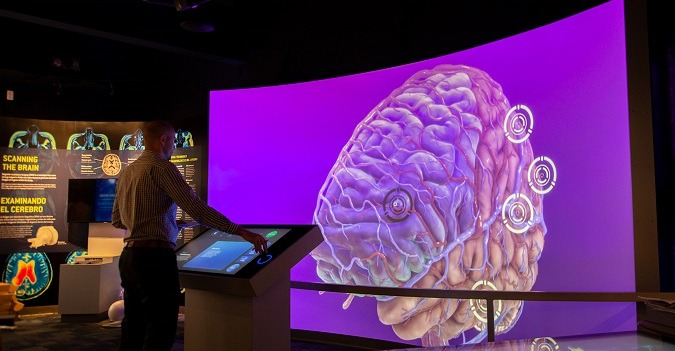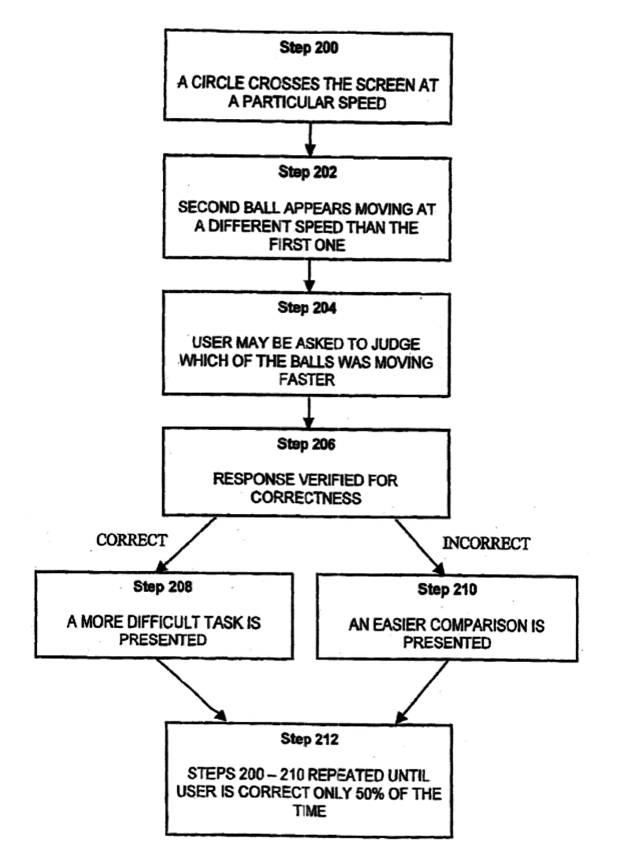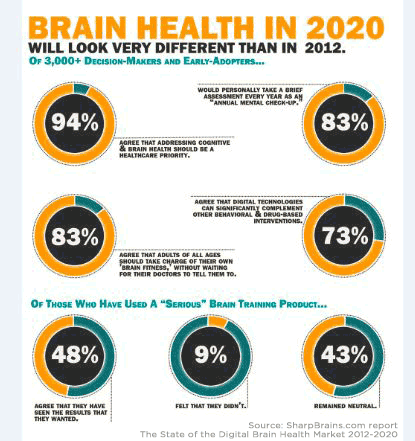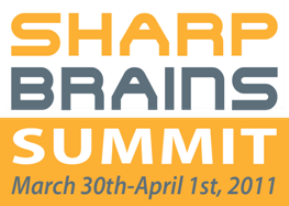Posts Tagged ‘cognitive-assessments’
On Awe, Healthy Eating, Mental Health, Ethical Neurotech, and more
_____ Time to wrap-up another very active month with our SharpBrains e‑newsletter summarizing exciting developments in brain research, healthcare and technology — plus a couple fun brain teasers to spark curiosity and innovation :-) New brain research: Brain scans shed light on the brain networks supporting Awe For World Mental Health Day let’s review how a healthy…
Read MoreTesting and training cognitive ability: Key Neurotech Patent #16
Today we are featuring a key 2003 patent assigned to Cognifit ltd — fascinating to reflect how the brain training field has evolved in 14 years! (As mentioned, we are featuring a foundational Pervasive Neurotech patent a day, from older to newer by issue date) U.S. Patent No. 6,632,174: Method and Apparatus for testing and training cognitive ability…
Read MoreWitnessing an explosion of consumer-facing neurotechnologies to (potentially) harness lifelong neuroplasticity
— Last week I shared some key scientific, technological and investment trends revolutionizing Brain Health, based on my participation at the 2016 SharpBrains Virtual Summit, and promised a second article more focused on the technology side of things. Here it is :-) Just a few weeks after the SharpBrains Summit I also attended CES 2017. While I enjoyed the myriad emerging…
Read More83% decision-makers, early-adopters would take an “annual mental check-up”
So the question we asked ourselves as we spent close to a year preparing our latest market report is, which technology platform and which company may successfully develop and commercialize a mainstream assessment, and how will it be integrated into other health/ medical/ wellness assessments and solutions?
Read MoreProtect Your Asset by Being Your Own Brain Fitness Coach
Last week I had the good fortune of spending four days in Nuevo Vallarta, Mexico, with over 300 amazing individuals from 40+ countries who had been named Young Global Leaders by the World Economic Forum. The summit agenda was insightful and inspiring, conversations with other participants always proved to be eye-opening and stimulating, and the…
Read MoreCan Brain Fitness Innovation Enhance Cognitive Rehab and Driving Safety?
Today we share must-read insights from Katherine Sullivan, Director of the Brain Fitness Center at Walter Reed Army Medical Center, and Peter Kissinger, President of the AAA Foundation for Traffic Safety. Both of them will discuss their ongoing work and lessons learned at the upcoming 2011 SharpBrains Summit (March 30th — April 1st, 2011). The interviews…
Read More





